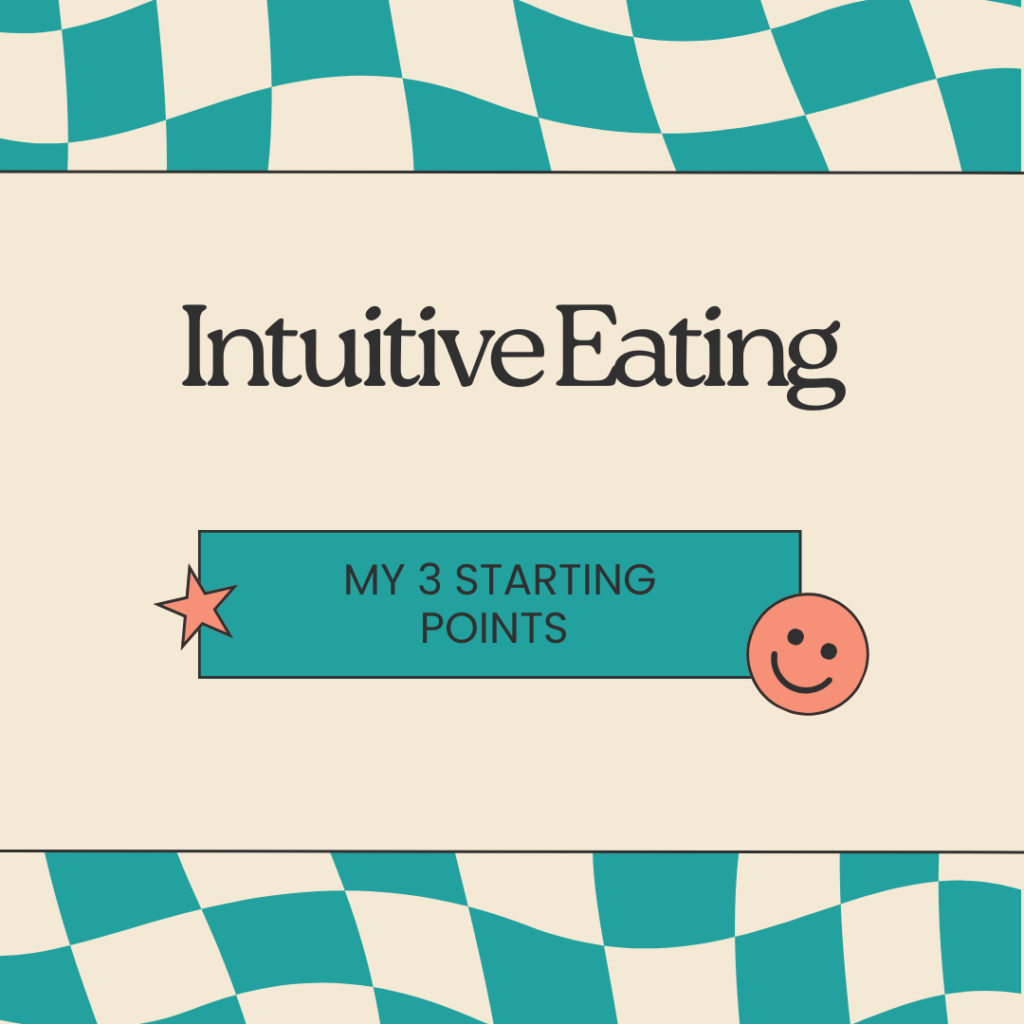What is intuitive eating? My short answer for most clients is “eating when you’re hungry and stopping when you’re full” but that answer doesn’t give the phrase it’s due justice. Instead, intuitive eating can be described as listening and responding to your body’s natural cues around food in a way that is non-judgmental and free of diet mentality.
Now let’s elaborate.
You can check out this amazing list of 10 Principles of Intuitive Eating but I will narrow it down to a few bullet points that I think are most important when striving to truly eat intuitively.
- Listen to Your Body: In my opinion, this is the most fundamental part of intuitive eating. Let’s get back to really paying attention and honoring our body’s hunger and fullness cues. If your tummy is grumbling, stop what you’re doing and go eat something, not an hour later when it’s “time” for lunch. If you think of an Oreo in the middle of reading something, while it’s possible that you might be having a craving or be bored, it might also be an early sign of hunger. Notice how the first few bites of a meal are extremely pleasurable and satisfying. Also notice how the 30th or 40th may not be as pleasurable. Pay attention to your stomach, slow your eating, pause in the middle of a meal- your body will tell you when you’ve had enough.
- Unconditional Permission: Break up with diet culture. You’re not a “better” person because you don’t eat XXX or you’re not a “bad” person because you ate that dessert today. You don’t need to feel guilty because you didn’t/did eat YYY. All foods can fit into a healthy lifestyle. Everything is ok in moderation. I’m not sure how else to get this concept across other than to give yourself unconditional permission to eat. No, this doesn’t mean go and eat whatever you want without another care in the world. And no, you will not just eat desserts for the rest of your life if you chose to try this.
- Honor your Health: In both food and movement. I can be the first to admit, I will likely never crave a vegetable. However, I do know that my body feels better when I’m incorporating vegetables into my diet. And I work on doing so in a non-judgmental way- not beating up on myself if I miss something. Same thing with movement. Most of us would agree (and there’s research to back it up) that moving our bodies makes us feel good and is good for us. But does that mean we have to be hitting the gym daily or need a structured exercise regimen? No. This means moving our bodies in a way and frequency that feels good to us and that we can do in a non-judgmental way.
Do I know any intuitive eaters?
Sure! My children (and most children) come to mind first. Our children can be eating us out of house and home one day/week and then barely nibbling other days leaving me wondering how they have enough energy to do anything. How does this work? Our bodies are designed with hunger and fullness cues/mechanisms that tell us when we need to eat more and when we can stop eating or have had enough. This may sound a little absurd since most of us, by the time we’re adults, have had so many external cues getting in the way, that we don’t even recognize our bodies’ natural cues anymore. Some of these external factors include growing up in a “clean your plate” family, being on a diet in order to force weight loss, being told a certain food or food group is bad for us so we cut it out, etc.
If you’re in a place where you’re looking to work on changing your relationship with food or eating more intuitively, I definitely recommend starting with the book Intuitive Eating by Evelyn Tribole and Elyse Reisch or working with a registered dietitian who can guide you through this journey.

